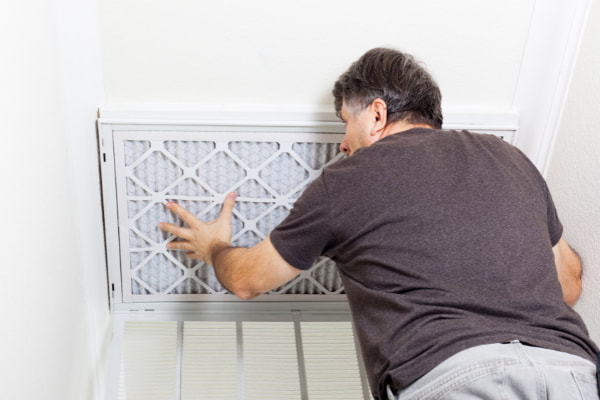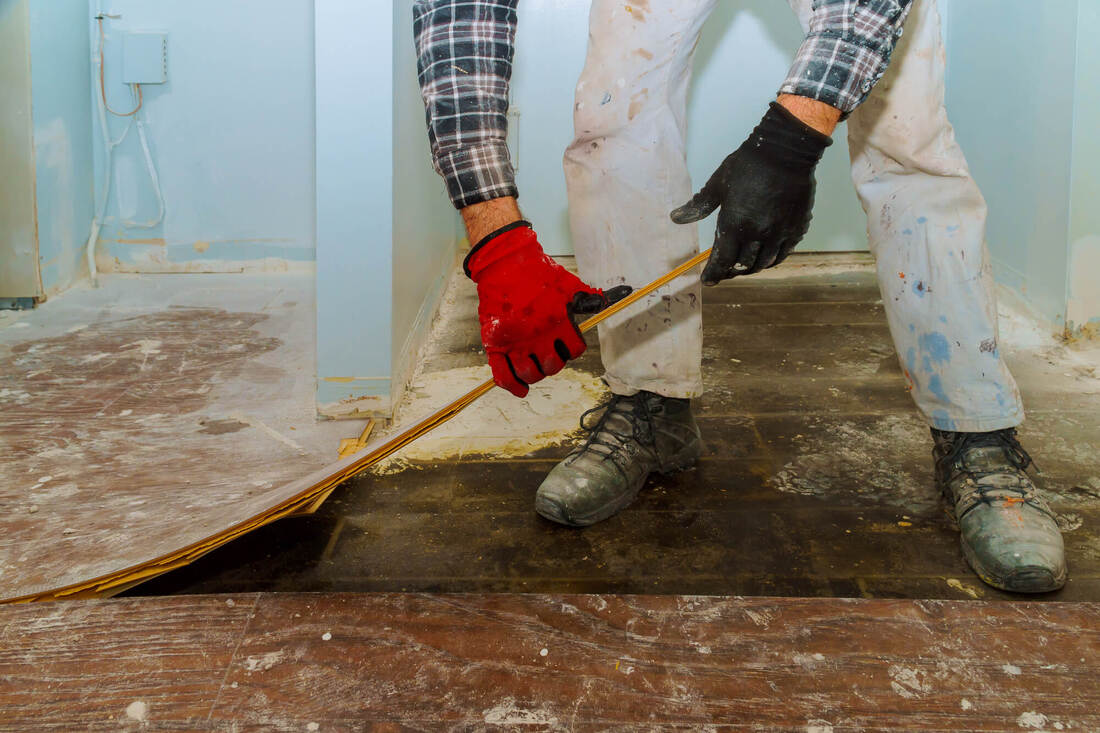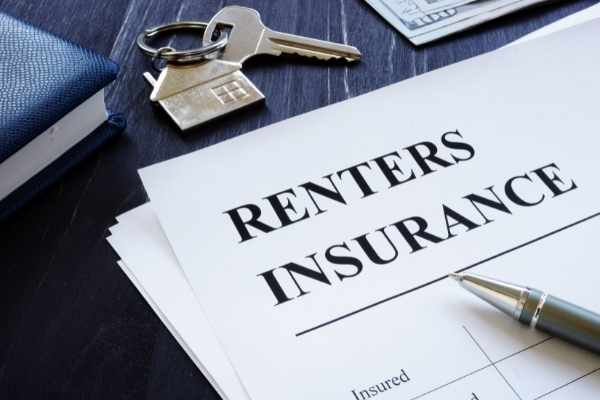|
Who doesn't love a summer full of beach getaways, picnics, and pool parties? The failure of your air conditioner while temperatures are at their highest, however, may be the quickest way for your summer fun to be ruined. To guarantee you have a comfortable, cool house to unwind in after all your outdoor activities, you need to make sure your HVAC unit is properly maintained throughout the year.
Ensuring that your HVAC system is in good operating order may not be at the top of your summer “to-do list” but it’s important to make sure your family is cool and comfortable throughout the sweltering summer. How to Maintain Your HVAC System for Summer Take these six preventative steps and examine your HVAC system in advance, so you can rest assured that you’ll be set for the summer heat. 1. Schedule Annual Maintenance Checks The best course of action to ensure your home is cool and comfortable for summer is to choose a reliable HVAC service to clean and check your system on a seasonal basis. You surely do not want to have no air conditioner during the hottest time of the year, and there are experts who can assist in identifying and diagnosing potential problems. 2. Clean and Change Your Filters Regularly The simplest and most efficient thing you can do to maintain the health of your HVAC system is to take good care of your filters. Clean air can circulate uniformly throughout the house when the air filter is properly maintained. It is crucial to inspect your air filter regularly for pet hair, grime, and other debris that can accumulate in the air ducts, so homeowners with pets or carpeting should check the filter more frequently. The filter can also become clogged with dust and pollen, which can cause the unit to perform less efficiently, increasing your electricity costs. If you use your air conditioner all year long, as most Floridians do, you should consider changing your filters every month. For disposable filters, write the date on the filter when you replace it, and make checking your filters a habit by coupling it with any other regular monthly occurrence, such as paying a bill. 3. Check for Cracks Around the House An HVAC system must work harder to make up for cool air that escapes through any cracks or holes in your walls, doors, or windows. This escaping air is typically the main reason for a spike in summer utility expenses. Perform a basic search around your home and seal up any cracks that you find with insulation, weather stripping, and/or caulking where necessary. 4. Clear the Area Around the Unit Outdoor condenser units can collect debris over time. Leaves and twigs can accumulate at the base, and it can become the perfect home for critters in the cooler months. As part of your yearly maintenance, make sure your air conditioner is turned off, and remove any debris you see close to the exterior unit's base. 5. Utilize Ceiling Fans If you have ceiling fans located throughout your home, this can be a great asset for your HVAC system. Fans may allow you to keep your thermostat a few degrees higher with the consistent air flow supporting the unit. In addition, if you set the blades to turn counterclockwise, ceiling fans can minimize the amount of hot air that rises, thus allowing the air conditioning unit to turn on less often. 6. Let the Unit Rest The question of whether it's preferable to keep your air conditioning at a constant temperature or to raise it while you're away from home has generated some discussion. The simple answer is that by keeping the temperature constant when you are home and allowing your system to rest while you are gone, you will save the most money and energy. Review Your Property Insurance Policy In addition to the previous suggestions, there’s one more important property maintenance task that you should not skip: reviewing your property insurance policy. At Reliant Insurance Adjusters, we offer several services to assist you in property insurance reviews. We take pride in providing you peace of mind with the knowledge that your home is protected. Get back to what’s most important this time of year and enjoy summer with your family. We can assist you, whether you need a pre-loss property inspection or help with filing an insurance claim. To find out how we can best serve you, call us at (561) 288-6434 or contact us here.
0 Comments
Working as insurance adjusters in South Florida means we have seen the results of a variety of DIY projects. It is common for property owners to want to renovate their own home. After all, these renovations can increase property values while improving quality of life.
That said, you may be wondering: does your homeowners policy cover a room that you renovated yourself? The answer will vary based on the specifics of both the situation and your policy. What Does Homeowners Insurance Cover? Homeowners policies vary, and it is important to examine your specific policy to determine what is covered. That said, these policies typically cover unexpected expenses. For instance, if a leak occurs after a renovation has been completed, the damage should be covered if the leak is not a result of workmanship. For all intents and purposes, policies typically treat projects the same whether they were performed by an owner or a contractor. Given this fact, it is worthwhile to ask: how do insurance companies typically address situations where contractors cause damage in a home? Workmanship Exclusions Insurance policies typically have a workmanship exclusion, which means that companies can deny insurance claims if the damage was caused by:
To put it simply, insurance policies are primarily designed to cover sudden and accidental losses. If the damage could have been foreseen and prevented, such as by doing the proper job, you likely do not have a valid insurance claim under your policy and would be denied coverage. If you file the proper permits, abide by the law, the work was done properly and you did not cause the damage, there is a good chance that your damages would be covered under your policy. Are There Any Exceptions to Workmanship Exclusions? Even if the workmanship exclusion prevents coverage for damage caused by neglect during the project, you may still be able to receive coverage. Many policies state that coverage is still provided if a “resultant peril” covered under the policy caused the damage. While an insurance company is unlikely to pay for a leak caused by faulty workmanship, you may be able to file an insurance claim if a hurricane or other peril caused damage unrelated to the leak. Finding the Right Contractor If you choose to hire a contractor, it is important to make sure you vet them thoroughly. Here are some of the qualities to look for in a contractor:
Looking for an Insurance Adjuster in South Florida? You have come to the right place. At Reliant Insurance, we work with residential and commercial property owners who want the best results for their insurance claims. We have decades of experience as public adjusters, appraisers and umpires. Do you have any questions about your claim or your coverage? Are you in need of qualified representation for your claim? Please do not hesitate to contact us today. You have found the perfect place to rent in the Sunshine State and you are excited to move in, but have you obtained a renter’s insurance policy? Many people make the mistake of assuming their landlord’s homeowner’s insurance will cover their assets and skip renter’s insurance altogether. Truth of the matter is the landlord’s policy covers only the physical structure of the rental property and will not protect you or your personal belongings as a tenant.
Generally speaking, renter’s insurance offers financial protection for people who rent in lieu of owning a home. Renter’s insurance safeguards you when your personal belongings are destroyed, vandalized, or stolen. It may also provide liability coverage for accidents or injuries sustained by guests. Renters insurance is a recommended solution to easing the financial risk associated with property damage but understanding how to properly exercise your policy rights can be challenging as a tenant. Here are a few things to consider when reviewing policy options. What Does Your Renter's Insurance Cover? In short, renter’s insurance covers what you own. Coverage for some of the most common causes of property damage and loss, such as theft, vandalism, water damage, and fire, is your responsibility as a renter, which makes this such an important topic. Personal Property Personal property coverage ensures your personal belongings are protected. For example, if your living room furniture is ruined due to water damage from a pipe that burst while you were at work, your renter’s insurance policy has you covered up to the limits of your policy. An important benefit is that personal property coverage may cover items even if they are not in the residence at the time of loss. For instance, belongings may be covered if they are stolen from your car or damaged in a move. Loss of Use Renter’s insurance covers losses caused by named perils. These perils typically include fire, lightning, smoke, vandalism, explosion, windstorm, hail, water, theft, and more. If disaster strikes and you cannot stay in your home because of covered losses, your loss of use coverage provides reimbursements for temporary housing and additional living expenses. Liability Coverage If someone is injured in your residence or anyone on your policy causes damage to someone else’s property or to their belongings, this coverage protects you. It also may protect you if you cause damage to another property. Medical Protection This type of insurance covers reasonable medical expenses for someone injured in your residence. What Renters Insurance Does NOT Cover There are plenty of things renter’s insurance will not cover, such as structural damage to your rental unit. This is why it is much cheaper to have renter’s insurance than homeowner’s insurance. Some other examples of items likely not covered by renter’s insurance include expensive jewelry and business equipment. However, you have the ability to apply coverage add-ons when you purchase renter’s insurance. Similar to homeowner’s insurance, renter’s insurance policies can add endorsements (also called riders or options) to strengthen your coverage of personal property. Common endorsements are for jewelry and electronics. How Much Coverage Should You Have? This answer can be complicated and varies from person to person. There is no minimum coverage amount that is right for everyone, but you will want enough renter’s insurance to protect yourself and your belongings against several risks. You will want to take an inventory of your belongings to evaluate your current coverage. Make a list of everything and estimate each item’s worth. This inventory should be as specific and thorough as possible, listing each item’s model number and price. Include possessions such as computers, electronics, clothes, and furniture. Then, you can determine the amount of coverage you will need to replace those items if they are ever stolen or damaged. The inventory can help you figure out how much coverage you need, but it will also become very important when filing an insurance claim. We are also Personal Property Appraisers and can assist you with the proper valuation of your personal belongings. Are You Looking for a Public Adjuster to Help Navigate Your Policy? Choosing the proper renter’s insurance coverage and navigating how to file a claim can be challenging and time-consuming. Experienced insurance adjusters can be your best resource, as they have the knowledge and expertise necessary to understand renters’ insurance policies and their complex language. Having a public adjuster on your side not only guarantees an advocate for your best interests but also helps ensure you get everything you are entitled to for your claim. At Reliant Insurance Adjusters, we have the knowledge and experience to obtain the best possible settlement for your claim. Contact us today to learn how we can best help you. |
AuthorKaren Schiffmiller Archives
July 2024
Categories |







